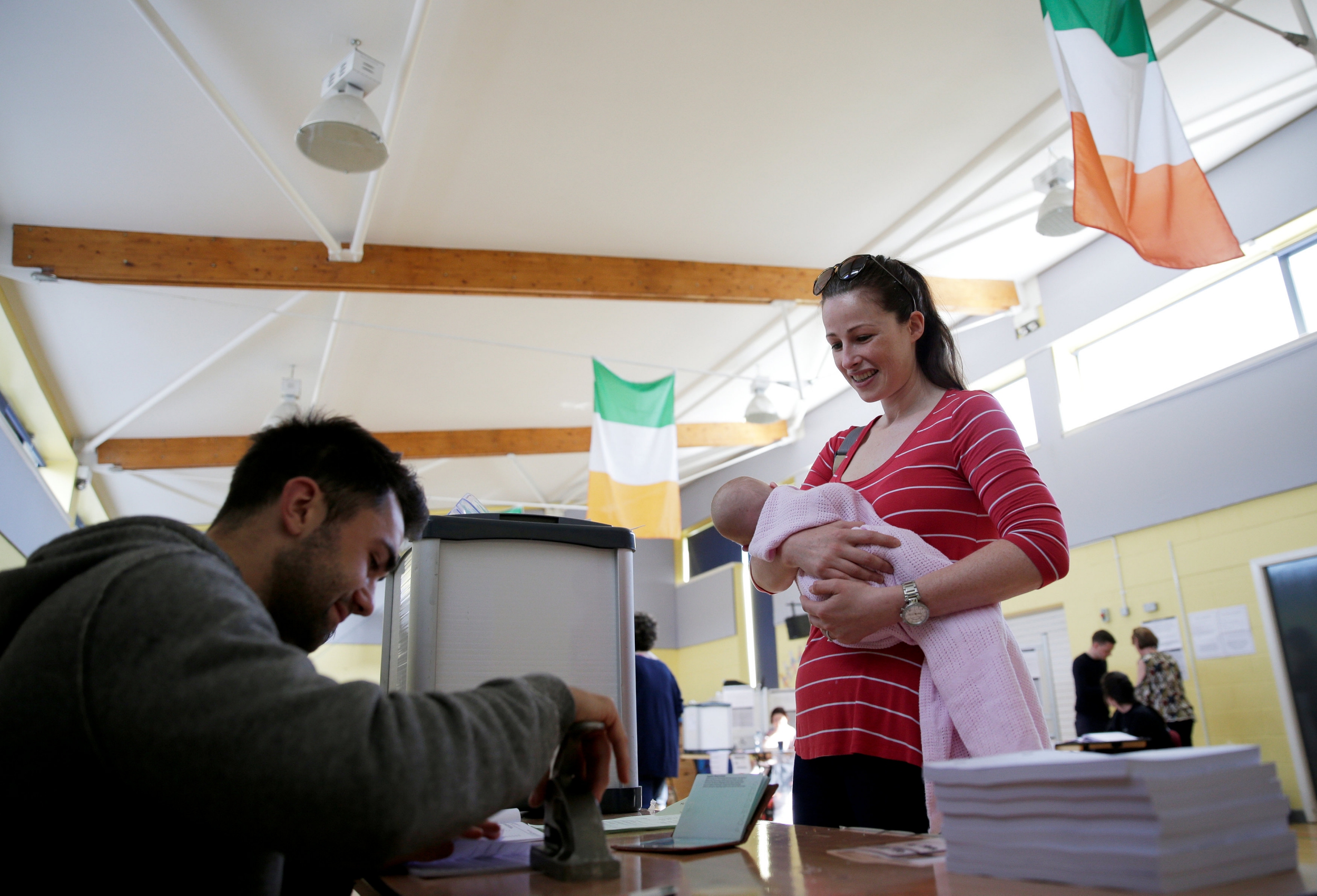Allowing Irish women access to abortion is a pressing human rights matter
The European Court of Human Rights in 2012 stated that the draconian restrictions on termination, worsened by inconsistency in application, were an abuse of the rights of Irish women

Your support helps us to tell the story
From reproductive rights to climate change to Big Tech, The Independent is on the ground when the story is developing. Whether it's investigating the financials of Elon Musk's pro-Trump PAC or producing our latest documentary, 'The A Word', which shines a light on the American women fighting for reproductive rights, we know how important it is to parse out the facts from the messaging.
At such a critical moment in US history, we need reporters on the ground. Your donation allows us to keep sending journalists to speak to both sides of the story.
The Independent is trusted by Americans across the entire political spectrum. And unlike many other quality news outlets, we choose not to lock Americans out of our reporting and analysis with paywalls. We believe quality journalism should be available to everyone, paid for by those who can afford it.
Your support makes all the difference.Although nominally a referendum about the eighth amendment of the constitution of Ireland, and obviously concerned with the issue of abortion, what is in fact at stake is nothing less than the human rights of the people of Ireland.
That is, after all, how the current wave of protest and campaigning for the liberalisation of abortion laws began: a ruling in the European Court of Human Rights in 2012. The ruling stated that the draconian restrictions on termination, worsened by inconsistency in application, were an abuse of the rights of Irish women. Soon after that, the case of Savita Halappanavar added a devastating shock: a blameless woman died in a Galway hospital due to complications from a septic miscarriage, despite having requested an abortion when she first fell ill that could have saved her life.
Irish law was amended at the time, for example to allow for lawful travel to Britain for a termination (though not Northern Ireland, where it remains more restricted). However, this left Ireland in the humiliating position of having a British chancellor get up in the House of Commons to declare that the National Health Service would ensure funding for such operations as a simple matter of mercy.
As matters stand – that is, until the final results come in – rape, incest or fatal foetal abnormality are not, of themselves, sufficient conditions for a woman to be allowed to exercise control over her own body. Repeal of the eighth amendment, which was only passed in 1983, would mark a significant, albeit long overdue, progressive reform.
Even if the vote is defeated, though exit polls suggest a victory for Yes to liberalising the laws, the very strength of the movement for change demonstrates once again how readily Ireland is modernising as a nation, not least because of its position as a committed and mutually supportive partner in the European Union. The nation is led by a mixed-race gay man, for example, a notion that would have been out of the question a few decades ago.
It is well within living memory, too, that the Roman Catholic Church held a special position guaranteed by the 1937 constitution as the “guardian” of Irish moral values. That went in the 1970s, and with it, haltingly and gradually, much of the old deference towards the Catholic Church, a trend reinforced by the numerous scandals around the behaviour of nuns and priests given free rein by conservative social mores.
By contrast, in the recent referendum campaign the Catholic Church adopted a relatively low profile. The national mood has turned more distant, detached and hostile to a Church that once made “fallen women” forced labour prisoners in the Magdalene laundries, for example, and turned a blind eye to child sexual abuse. The shaming of single mothers led to untold human misery, and Ireland seems at last ready to face up to that.
The recent legalisation of same sex marriage and an earlier relaxation of discriminatory laws affecting LGBT+ people were also landmark changes for a country travelling at rapid speed towards full human rights for all. A referendum on divorce laws in November will be another progressive step.
So, as it approaches its centenary as an independent state in 2022, as well as nearly half a century in the EU, Ireland has come a long way, socially, economically and culturally, in a relatively short space of time.
What is striking today, and again in the context of Brexit and the border issue, is how much Ireland has moved on, where Northern Ireland has not – as of yet. The example set by Ireland and the rest of the UK on human rights and liberal reform should give the authorities in Stormont some further cause for thought. This might most poignantly be the case if women from the North seeking terminations travel south to exercise their human rights after a change in Irish law.
Human rights are universal, and recognise no intellectual, religious or physical borders, after all, Brexit or not.
Join our commenting forum
Join thought-provoking conversations, follow other Independent readers and see their replies
Comments